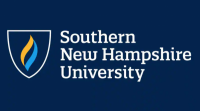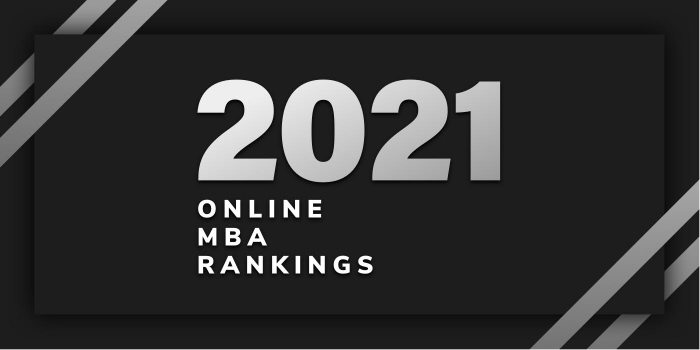
Our 2021 list of the Top 50 Online MBA Programs in the US. For an explanation of ranking criteria, click here.
| Ranking | School | State | % of Schools Considered |
|---|---|---|---|
| 1 | University of North Carolina at Chapel Hill | North Carolina | 1% |
| 2 | Indiana University Bloomington | Indiana | 1% |
| 3 | University of Southern California | California | 1% |
| 4 | Arizona State University | Arizona | 1% |
| 5 | University of Florida | Florida | 2% |
| 6 | University of Texas at Dallas | Texas | 2% |
| 7 | University of Washington | Washington | 2% |
| 8 | Rice University | Texas | 2% |
| 9 | Pennsylvania State University | Pennsylvania | 3% |
| 10 | University of Michigan-Ann Arbor | Michigan | 3% |
| 11 | University of Maryland | Maryland | 3% |
| 12 | University of Arizona | Arizona | 3% |
| 13 | Auburn University | Alabama | 3% |
| 14 | University of Illinois at Urbana-Champaign | Illinois | 4% |
| 15 | North Carolina State University | North Carolina | 4% |
| 16 | Pepperdine University | California | 4% |
| 17 | University of Utah | Utah | 4% |
| 18 | University of Massachusetts-Amherst | Massachusetts | 5% |
| 19 | Temple University | Pennsylvania | 5% |
| 20 | University of Wisconsin MBA Consortium | Wisconsin | 5% |
| 21 | Washington State University | Washington | 5% |
| 22 | University of Nebraska-Lincoln | Nebraska | 6% |
| 23 | University of Kansas | Kansas | 6% |
| 24 | Syracuse University | New York | 6% |
| 25 | University of California, Davis | California | 6% |
| 26 | Baylor University | Texas | 7% |
| 27 | University of Miami | Florida | 7% |
| 28 | Rutgers University | New Jersey | 7% |
| 29 | Florida State University | Florida | 7% |
| 30 | Northeastern University | Massachusetts | 7% |
| 31 | Santa Clara University | California | 8% |
| 32 | University of Pittsburgh | Pennsylvania | 8% |
| 33 | Babson College | Massachusetts | 8% |
| 34 | The College of William & Mary | Virginia | 8% |
| 35 | University of Cincinnati | Ohio | 9% |
| 36 | George Washington University | D.C. | 9% |
| 37 | Colorado State University | Colorado | 9% |
| 38 | Oklahoma State University | Oklahoma | 9% |
| 39 | Villanova University | Pennsylvania | 10% |
| 40 | Clemson University | South Carolina | 10% |
| 41 | Florida International University | Florida | 10% |
| 42 | University of Denver | Colorado | 10% |
| 43 | Louisiana State University | Louisiana | 10% |
| 44 | Ball State University | Indiana | 15% |
| 45 | Lehigh University | Pennsylvania | 15% |
| 46 | Boise State University | Idaho | 15% |
| 47 | Mississippi State University | Mississippi | 15% |
| 48 | Ohio University | Ohio | 15% |
| 49 | Rochester Institute of Technology | New York | 15% |
| 50 | University of Mississippi | Mississippi | 15% |

In 1795, University of North Carolina at Chapel Hill (UNC Chapel Hill) became the only public university in the U.S. to award degrees in the 18th century. The School of Commerce was established in 1919 and is known today as Kenan-Flagler Business School. With more than 42,000 graduates working in all states and dozens of countries, UNC Kenan-Flagler is considered one of the nation’s top business schools.
The online MBA program at UNC (MBA@UNC) is one of the most recognized and established in the country. This 66 credit hour, STEM-designated degree program allows students to interact with faculty weekly using a face-to-face online platform. Program highlights include a customizable curriculum, on-campus summits, and experiential global opportunities that allow students to travel to major business centers around the world such as Johannesburg, Istanbul, London, Singapore, and others. MBA@UNC students can customize their studies and refine their leadership skills with 25+ elective options in five concentration areas including Data Analytics and Decision Making, Entrepreneurship, Finance, Marketing, and Strategy and Consulting.
Students may participate in several additional programs to gain even more hands-on business and international experience. Optional programs include Student Teams Achieving Results (STAR), the Exchange Program, and Doing Business In (DBI). STAR students "students learn by doing as they take on the role of consultants to real companies,” says the school, while the Exchange Program “allows MBA@UNC students to study at another top-ranked business school in countries across the globe." Doing Business In (DBI) "gives students an opportunity to study abroad at an MBA exchange partner school."
With four annual start dates (January, April, July and October), the MBA@UNC can completed in as few as 18 months or as many as 36, depending on the students schedule and other commitments. The program is accredited by the Association to Advance Collegiate Schools of Business (AACSB).
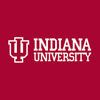
Kelley School of Business (KSB) at Indiana University Bloomington (IU Bloomington) was established in 1920 as the School of Commerce and Finance. When it opened, the school had just 70 students. Today, KSB serves more than 12,000 students enrolled in more than 30 programs in Bloomington, Indianapolis, and online.
Kelley School of Business offers a flexible online MBA program that allows students to customize their experience by selecting 12 credit hours of electives to create a specialized area. Known as “Kelley Direct Online,” the program offers the opportunity to complete a dual MBA/MS degree with an online MS in Business Analytics, or Strategic Management. This may be accomplished with only 12 additional credit hours.
Other unique opportunities for students include AGILE—Accelerating Global Immersion Leadership Education, which allows students to gain international business experience while pursuing their online degree. Offered each quarter, the AGILE curriculum features travel to places such as Gaborone, Botswana; Sao Paolo, Brazil; Beijing, China; New Delhi, India; Yangon, Myanmar, Johannesburg, South Africa, and Havana/Vinales, Cuba.
The AACSB-accredited Kelley Direct Online MBA takes just two years to complete.
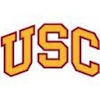
With 46,000 students and a distinguished faculty of more than 4,000 innovative scholars, researchers, teachers and mentors, University of Southern California (USC) is one of the world’s largest private research universities. The school is also one of the most competitive, admitting just 12% of more than 70,000 applicants.
Marshall School of Business at USC (USC Marshall or Marshall) was established in 1920 as the USC College of Commerce and Business Administration, making it the oldest AACSB-accredited school of business in Southern California. The school offers an online MBA program that “teaches students to become forward-thinking business leaders who can analyze a situation from diverse perspectives and create effective, practical solutions,” says the school.
Students will complete the program through multiple delivery methods including interactive games, virtual learning exercises, group video conferences, class sessions led by instructors, and one-on-one faculty discussions via webcam. Telly Award-winning video content and presentations produced at the USC Marshall dedicated studio are also highlighted, as well as case studies and dramatizations of real-world business scenarios, and collaborative video activities and assessments.
Students must attend a one-week, on-campus residency to complete this AACSB-accredited program.
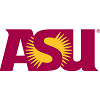
In fall 2021, Arizona State University (ASU) welcomed 103,609 undergraduate students and 25,179 graduate students, making it one of the nation’s largest public universities by enrollment. The school’s nationally ranked programs have positioned the university as a “top-tier” recruiting and hiring institution by more than 50 of the country’s top corporations, according to professional recruiters and rankings services around the world. Among the school’s nationally ranked programs is the MBA, which has a 70% employment rate at graduation and a 90% employment rate within 90 days of graduation.
Offered through W.P. Carey School of Business, the ASU MBA program has a flexible online option that includes just one meeting at the beginning of the program. This mandatory orientation session allows students to meet W.P. Carey faculty, staff, students, and teammates. After orientation, coursework for the 36 credit hour program may be completed entirely online.
This competitive AACSB-accredited program consists of 49 total credit hours (17 classes) and students are allowed to take just one course at a time (five weeks per course). Students also have the opportunity to customize their MBA by declaring an area of emphasis in Finance, International Business, Marketing, or Supply Chain Management.
Other program highlights include the opportunity to interact with teammates in case-based projects, an inclusive online environment, and the option to earn two degrees in less time and at a lower cost. Concurrent online degree options include the MBA/MSE in Electrical Engineering, the MBA/Master of Legal Studies, and the MBA/MS in Industrial Engineering.
Students in both the single and dual online MBA programs have the option to start in January or August.
Graduates of the program are prepared to work in a variety of industries, including Business, Communications, Finance, Human Resources, Marketing, and STEM.
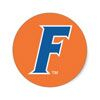
Founded in 1853 and serving nearly 58,000 students, the University of Florida (UF) is one of the largest and oldest universities in the state. The school houses more than 200 bureaus, education centers, institutes, and research & service centers, along with more than a dozen colleges and schools.
In 1999, the Warrington College of Business at University of Florida became one of the first schools to offer a fully accredited, 100% online MBA program. The school says the “innovative 24-month option does not require a single campus visit.” The school also offers a 16-month accelerated option for those who have an undergraduate degree in business and graduated in the last seven years.
A concurrent Outreach Engineering Management (OEM) Master’s (OEM/MBA) is also available. This degree option “reduces the amount of time and coursework required for students to obtain both the MBA and the OEM degree from UF."
Course highlights for the online MBA include Business Plan Formation, Business-to-Business Marketing, Customer Analysis, Introduction to Real Estate, Marketing Analytics, Measuring and Managing Value, and The Art & Science of Negotiation.
All online MBA students are encouraged to enroll in UF's MBA Global Immersion Experiences (GIE). Students register for the two-credit course that meets in person and online over the course of the semester and includes a seven- to 10-day experience abroad in Argentina, Brazil, China, Ireland, United Arab Emirates, and others.
The Online MBA programs at UF’s Warrington College of Business are AACSB-accredited.
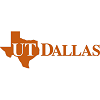
In the 1960s, Texas Instruments owners Cecil Green, Erik Jonsson, and Eugene McDermott watched “promising young Texans leaving the state to pursue education,” says University of Texas Dallas (UTD), “while their company recruited out-of-state talent to work at their Dallas-based headquarters.”
“Hoping to create better higher-education opportunities in North Texas, the trio established the Graduate Research Center of the Southwest — the foundation for what will become” The University of Texas at Dallas. “Rooted in an entrepreneurial spirit, UTD has grown into one of the nation’s top public research universities.”
UTD server nearly 29,000 students enrolled in eight schools and more than 140 academic degrees including top-ranked programs in Arts and Technology, Audiology, Business, Engineering, and Science.
Naveen Jindal School of Management (JSOM) is the largest of UT Dallas’ eight schools. It houses the Online Professional MBA (PMBA), which allows students up to 72 months to complete the program. Students also have the option to complete the program in as few as 16 months. There are no on-campus requirements and students have full access to the MBA Program Office and Jindal School Career Management Center staff.
This AACSB-accredited program utilizes "streaming audio lectures, video clips, online exams, online submission of assignments, and interactivity for group projects using discussion forums, email, and web conferencing." The 53 credit hour Online PMBA also highlights 24 hours of electives, along with an impressive 13 MS/MBA options, including six STEM-designated, and 15 concentrations. Nearly 60 elective options are available and just a few concentrations include Business Analytics, Energy Management, Healthcare Leadership and Management, Innovation and Entrepreneurship, Internal Audit, and International Management Studies, and Systems Engineering & Management, to name a few.
Online PMBA students may also pursue specialized elective coursework through the Academic Certificate programs offered within Executive Education in addition to the programs regular MBA concentrations. Certificate options include Executive and Professional Coaching, Organizational Consulting, Project Management, and Transformational Leadership.
JSOM Online PMBA students are encouraged to participate in the school's International Study Programs, which "give direct exposure to business in a global context." Programs last the duration of a long semester, a summer term or even seven to 10 days abroad. To date, the JSOM Study Abroad Office has conducted more than 35 faculty led international study trips in more than 16 countries for the past 15 years.

University of Washington (UW) has three campuses (Seattle, Bothell, and Tacoma) that offer more than 600 degree options to a population of just over 57,500 students. The Michael G. Foster School of Business at University of Washington (UW Foster) offers a hybrid MBA program that can be completed mostly online.
This two-year, interactive program is the first of its kind offered by Foster and it allows students to complete 95% of the program online and 5% on campus. The online component consists of a combination of guided independent work supplemented with virtual teamwork, Foster Live sessions (60-90 minute interactive sessions with Foster faculty and Hybrid classmates for weekly class), and optional Thursday evening online review sessions. The in-person component consists of a mandatory three- to five-day intensive, on-campus immersion, at the beginning of each quarter.
The curriculum for the program is comprised of 52 credits of core courses and 10 credits of Hybrid MBA electives. Due to the unique online and in-person format, Hybrid MBA electives are exclusive to the Foster Hybrid MBA program. Elective highlights include Behavioral Finance, Digital Marketing Strategies & Systems, Foundations of Entrepreneurship, International Study Tour, International Supply Chain Management, Leading Organizational Change, Mergers & Acquisitions, Negotiations, Product Management, Real Estate Finance, and Tools for Big Data: Business Analytics.
Students in the program will also benefit from “hands-on case analysis,” says the school, which allows them to “examine real-world business problems and learn how to best evaluate a situation by applying concepts and strategies acquired throughout the program.”
Other program highlights include support through workshops, training, and coaching sessions, and the opportunity to attend networking events with employers on the UW campus.
The UW Foster School of Business is AACSB-accredited.
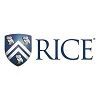
On May 18, 1891, Massachusetts-born businessman William Marsh Rice chartered the William Marsh Rice Institute for the Advancement of Literature, Science and Art as a gift to the city of Houston, where he made his fortune. In 1907, astronomer and mathematician Edgar Odell Lovett became the first president of Rice. In 1912, the Rice Institute finally opened with 77 students taught by a dozen faculty. Today, Rice University serves just over 7,500 students taught by nearly 900 instructional faculty members. More than 50 undergraduate majors and dozens of graduate programs are offered in eight schools.
The Jesse H. Jones Graduate School of Business at Rice University offers an AACSB-accredited online MBA program known as the MBA@Rice. Program highlights include meetings with faculty members and peers each week for live, face-to-face class sessions over Zoom, small class sizes, and assignments—which include real-world case studies, video simulations and collaborative projects—that may be completed each week from anywhere, using any connected device.
The program, which has seven focus areas, develops students’ understanding of “essential business principles such as financial accounting, business analytics, marketing strategy, leadership and finance,” says the school. Students will “learn to apply these larger concepts throughout an organization” as they hone their skills in one of the focused specializations of study. Focus areas allow students to customize the academic experience and include Corporate Finance, Corporate Strategy, Energy, Entrepreneurship, Healthcare, Investment Management, and Marketing.
In each 10-week term, students will take courses totaling up to six credits. The first year will consist of all core courses, and the second year features a combination of core and elective courses. Course highlights include Business-Government Relations, Competitive Strategy, Corporate Investment Policy, Corporate Responsibility, Economic Environment of Business, Futures and Options, Geopolitics of Energy, Leadership, and Negotiations.
Students must complete 54 total credits including 36 core credits, 12 elective credits, three credits of Residential Intensive Learning Experiences (ILEs), and three additional credits of electives or ILEs. ILEs consist of a variety of simulations, immersions, seminars, intersessions, and guided leadership exercises that bring students face to face with peers, faculty and industry leaders. Domestic ILEs are often held on the Rice University campus in Houston, Texas.
Global Field Experiences (GFE) are also part of the program. GFE’s allow students to connect with peers, faculty and mentors in person in locations around the world.
Exams for the MBA@Rice are held during the final week of each semester and the program can be completed in 24 months.

Pennsylvania State University (Penn State or PSU) serves 100,000 students and 17,000 faculty and staff across 24 campuses and in 20 colleges and schools. As Pennsylvania's only land-grant university, Penn State has a broad mission of teaching, research, and public service. The school houses the Smeal College of Business, which offers 1300+ internship and co-op opportunities annually, 300+ career fairs and corporate recruiting events each year, and a 94% placement rate for MBAs within three months of graduation.
The online MBA program is led by the Smeal College of Business, in partnership with Black School of Business, Penn State Behrend; Penn State Great Valley School of Graduate Professional Studies; and Penn State Harrisburg School of Business Administration. This AACSB-accredited program consists of 48 credit hours, which includes 39 General Management credits and nine credits of concentration work.
Core coursework prepares students to become “more effective business professionals,” says the school, “by exposing them to the principles and practices essential to modern management,” including accounting, communications, data analysis, digital transformation, economics, ethics, finance, human resources, innovation, leadership, marketing, strategy, and supply chain.
An impressive 24 concentration options are available. Just a few include Business Analytics, Business Architecture, Business Sustainable Strategy, Corporate Innovation and Entrepreneurship, Cybersecurity Intelligence Leadership, Engineering Leadership and Innovation Management, Health Care Business, Homeland Security, Negotiation and Influence, Strategic Leadership, and Taxation.
The MBA program runs on the Penn State semester system, so in addition to a declaring a concentration, students can take advantage of other Penn State online graduate degree and certificate courses and programs.
At the start of the Penn State Online MBA Program, students must attend a five-day Orientation Residency held at University Park, Pennsylvania. The residency provides the opportunity for students to meet program faculty and fellow students while immersing in the first core course in the program, Team Performance. Students will also attend other “highly engaging sessions during the residency that focus on professional development and using online technology.”
The residency is required to start the program, and is currently offered virtually, but an on-campus option will return beginning in summer 2022.

University of Michigan-Ann Arbor (UM Ann Arbor) was established in 1817 in Detroit, Michigan as one of the first public universities in the nation. Serving 48,090 students, UM Ann Arbor is the largest of the three University of Michigan Campuses (Ann Arbor, Dearborn, Flint). The school offers 250 degree programs in 19 schools and colleges. The Stephen M. Ross School of Business (Michigan Ross) offers a part-time MBA program that may be completed mostly online.
Program features include live, interactive classes + self-guided modules, hands-on, in-person residencies, and an individualized approach to career development & recruiting. Students will complete 27 core credits, 18 elective credits, nine credits over three residencies, and three Multidisciplinary Action Projects (MAP) course credits. Elective credits allow students to customize their studies according their specific interests and goals and the semester-long MAP course work allows students to work in a team to solve a problem for a real-world company or organization. The experience is designed to test the student’s business acumen.
Elective course highlights include Bargaining and Influence Skills, Communicating in a Virtual World, Competitive Tactics and Policy, Digital Marketing, Leading Diverse Teams, High Stakes Leadership: Building Resilience Through Relationship, The Science of Success: Who Succeeds, Who Doesn’t and Why and Venture Capital.
Other program highlights include the opportunity establish and run a functional team within a real company in the school’s immersive Living Business Leadership Experience (LBLE) course and Global Experiences that will take students to places such as China, Germany, Israel, and more.
Graduates of the Michigan Ross Online MBA Program move on to successful careers at companies in cities such as Boston, Chicago, NYC, San Francisco, Seattle and abroad. Many have gone on to secure positons in consulting (nearly 40% of graduates), with a base median salary of $160,000 and median signing bonus of $30,000.
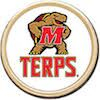
Founded in 1856, University of Maryland (UMD) is the flagship campus of the University System of Maryland. UMD is the original land-grant institution in the state and it is one of only 62 members of the Association of American Universities, an organization composed of the leading research universities in the United States and Canada.
Serving nearly 41,000 students and employing 14,505 faculty and staff members, UMD has 388,000 alumni including famous graduates such as Co-founder of Google, Sergey Brin, Jim Henson, founder of The Muppets, and Seinfeld co-writer, Larry David.
The school houses the Robert H. Smith School of Business (est. 1920), which offers an AACSB-accredited online MBA program with six career-focused specializations. Options include Accounting, Finance, General Track, Information Systems and Business Analytics, Marketing, and Supply Chain Management. The program, which consists of 54 total credits completed over six 14-week terms, is largely asynchronous, which allows students to continue to meet personal and professional obligations during their course of study.
The school says “a small number of live online classes presented via the state-of-the-art video conferencing tool, Adobe Connect, provide the benefit of “attending” class and interacting with professors and peers in real time.” Students will also benefit from audio and video messaging, integrated multimedia, collaborative online workspaces, and career coaching. Smith’s Office of Career Services (OCS) takes students through “a phased approach” to creating their “core career portfolio, complemented with next-level learning and capstone experiences.” This entire career development protocol repeats each year so students can “get what [they] need when [they] need it.”
The UMD Smith Online MBA may be completed in as few as 24 months, while still providing “the same academic rigor and top faculty” as is offered in the school’s campus-based programs.
The online program has two three-day required campus-based residencies that “allow students to build a strong working relationship with their cohort peers and the faculty from the outset, setting the stage for academic success and professional growth, and to come together for a capstone experience at the end of the program.”
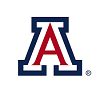
Established in 1885, University of Arizona (UA) was the first university in Arizona Territory. The school’s first graduating class in 1895 consisted of just two women and one male. Today, UA serves nearly 47,000 students enrolled in 300 undergraduate and graduate degree programs in 20 colleges and 12 schools across four campuses.
Eller College of Management is one of the 20 colleges at University of Arizona. This AACSB-accredited college serves just over 6,600 students enrolled in 10 undergraduate majors and 16 graduate programs, including a 100% online MBA that may be completed in as few as 14 months. With six starts per year (every eight weeks), the program requires 14 core two-unit courses and 17 units of electives for a total of 45 units to graduate. Six concentrations are available including Entrepreneurship, Finance, Health Care, Management and Organizations, Management Information Systems, and Marketing.
Also known as the OMBA, the Eller Online MBA highlights 24/7 asynchronous delivery of content that minimizes students’ time away from work and family, the option to decide how many courses to take at a time (take up to six years to complete the program), and AACSB accreditation. Graduates of the program enjoy an 86% employment rate within 90 days of graduation, along with an average starting salary of $89,870.
Top recruiters for the Eller OMBA include EY, General Motors, Goldman Sachs, Intel, Honeywell, Macy’s, Microsoft, Nationwide, and PwC.
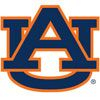
Auburn University was chartered in 1856 as East Alabama Male College—a Methodist institution. Beginning with EAMC, the school has had four official names: Agricultural and Mechanical College of Alabama, Alabama Polytechnic Institute, and Auburn University. Classes were first held for 80 students with a faculty of six in 1859. Today, the school serves approximately 30,737 students enrolled in 140 programs within 13 colleges and schools.
The Raymond J. Harbert College of Business, which has grown an impressive 50% over the last seven years, offers a video-based Distance MBA that may be completed in 2.5 years, part-time. The 36 credit hour program offers an optional three-day orientation at the beginning of the program and a three-day on campus residency on the Wednesday, Thursday, and Friday before graduation. Otherwise, all coursework for the program is delivered through the University's online student learning platform CANVAS.
Students use CANVAS to view lectures, work with team members on group assignments, ask questions and hold discussions with professors and classmates, submit homework, and access course materials. The lock-step curriculum allows online students to watch the exact same lectures, take the same tests, and communicate with the same professors as on-campus students.
Students can live-stream classes or choose to watch at the time most convenient for them. Courses are taken at the student’s own pace, with most online students taking one or two classes each semester. The curriculum includes a mix of core business classes and business electives and the final semester includes the Capstone Course, where groups of MBA students provide consultation to a number of real businesses on various topics.
In addition to optional concentrations in Finance, Marketing, Management, Information Systems, Supply Chain, Business Analytics and Human Resource Management, this AACSB-accredited program offers dual degrees (MBA/MS) in Finance, Information Systems, and Industrial and Systems Engineering as well as graduate certificates that complement the online MBA. Certificates range from nine to 24 credit hours and include Business Analytics, Cybersecurity Management, Management Information Systems, and Supply Chain Management Innovation to name a few.
Graduate research assistantships, which are awarded annually, are also available.
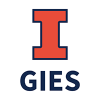
The University of Illinois Urbana-Champaign (UIUC) is one of the original 37 public land-grant institutions created after President Abraham Lincoln signed the Morrill Act in 1862. Founded in 1867 and serving more than 52,000 students, the school is the oldest and largest campus in the University of Illinois system. Eighteen colleges housed within UIUC provide more than 150 programs of study.
Officially formed in 1915, Gies College of Business serves more than 8,000 business students each year, with more than half enrolled in graduate programs, including Gies’ fully online MBA (iMBA). This career-curated program organizes material in a way that mirrors how students will “actually use it on the job,” says the school. “On top of that, it includes heavy development of leadership skills and vision, including special pathways and team projects on the forces shaping the future—digitalization, globalization, and innovation.”
The iMBA is divided into several specializations, groups of related courses. To finish the program, students must complete at least five specializations and a group of electives, or complete six specializations. The degree culminates with a program-wide experiential learning course. Specializations include Digital Marketing, Financial Management, Global Challenges in Business, Innovation: From Creativity to Entrepreneurship, Managerial Economics and Business Analysis, Strategic Leadership and Management, Value Chain Management, and Business Analytics.
Specializations ultimately come together as a capstone project and lead to the complete MBA. The capstone is self-directed and consists of a strategic leadership and management plan covering the design and management, effective people management, analysis of a business situation, and the formulation and implementation of a strategy.
Learning for the program takes place through the University of Illinois and Coursera. The part of the curriculum in the Coursera platform is on-demand, so students can complete it at their own pace. Other program highlights include hands-on faculty who are interactive in classes and projects, and weekly live class sessions, covering multiple time zones across the world. iMBA students live in more than 90 countries.
Highlights of this AACSB-accredited program include job placement and students’ ability to immediately apply what they learn. More than half of iMBA students earn a promotion, receive a job offer, or accept a new position during their time in the program. And students report receiving a 21% average pay increase before graduation.
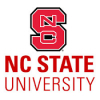
North Carolina State University (NC State or NCSU) held its first classes in the fall of 1889 with 72 students, six faculty members and one building. Today, NC State is the largest of the 16 higher-education institutions in the University of North Carolina system, with over 2,000 faculty members, an administrative and support staff of more than 5,500, and a current enrollment of more than 36,700 students from across the state and around the world. Through its 11 colleges, NC State offers 100+ undergraduate programs, 100+ master’s programs, 60+ doctoral programs, and a Doctor of Veterinary Medicine.
The school’s most popular majors are Agriculture, Agriculture Operations, and Related Sciences; Business, Management, Marketing, and Related Support Services; Biological and Biomedical Sciences; Communication, Journalism, and Related Programs; and Engineering.
Founded in 1992 and serving more than 3,500 students, Poole College of Management at NC State offers a 40 credit hour Professional Online MBA that has six “Depth Areas” comprised of the same functional area options as concentrations, but with fewer credit hours required to graduate. Known as the “Jenkins MBA,” areas for the program include Biosciences Management, Entrepreneurship & Technology Commercialization, Financial Management, Innovation Management, Marketing Management, and Supply Chain Management. This AACSB-accredited program also offers the opportunity to earn Decision Analytics or SAP Certification. SAP is the world's largest enterprise applications software company, with a wide range of software used by more than 38,000 firms in over 120 countries.
Students in the Jenkins Online MBA program may choose the Accelerated Path, which takes as few as 21 months to complete, or the Flexible Path, which allows students to complete their degree in as little as 21 months or up to six years. Both pathways “integrate proven technology strategies to help connect” students with professors, guest speakers, and peers, “using podcasts, videos, and online presentations.” Students will work with virtual teams during discussions and on group projects. Professors also provide office hours through a virtual collaborative space, phone, email, and online chat.
The Jenkins Online MBA requires two three-day residencies on NC State’s main campus in Raleigh. In addition, students are encouraged to complete an optional International Immersion that lasts for seven to eight days. “The focus of the trip is to provide global business and cultural awareness skills,” says the school.
For 2019, travel experiences include France: MBA, Art & Science of Negotiation in Paris and Germany: MBA, Innovation & Marketing Systems in Munich. Study abroad trips take place during the Spring and Summer semesters, (usually mid-March or mid-May).
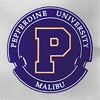
Pepperdine University was established by entrepreneur George Pepperdine in South Los Angeles in 1937. The school, which expanded to Malibu in 1972, serves 8,000 full-time and part-time students, with a full-time faculty of more than 300 professors and scholars. The school has five separate graduate and undergraduate schools offering more than 70 degree programs.
Founded in 1969, the Graziadio School of Business and Management offers online degree programs across six California campuses, including Malibu and Silicon Beach. The online MBA program focuses on building “essential business knowledge in areas such as finance, marketing, accounting, economics, quantitative analysis, law, human behavior, information systems, strategy, management, and leadership,” says the school. Students will build “business intelligence” as they “examine business from a global perspective and address the impact of globalization, competition, technological innovation, and ethics in the workplace.”
Students in this 52 credit hour, AACSB-accredited program will “do more than read case studies about top brands, such as Disney, Starbucks, and Warner Bros.” They will “will actually work” with top executives on” live consulting projects” to “solve real-time challenges.”
Other program highlights include the Personal and Leadership Development Workshop residency, which takes place at the schools’ coastal Malibu campus, Global Business Intensives, which cover relevant topics such as international economics, culture, marketing, finance, and business law, and seven in-demand concentration options. These include Business Analytics, Digital Innovation and Information Systems, Entrepreneurship, Finance, Global Business, Leadership and Managing Organizational Change, and Marketing. A General Concentration that allows students to develop expertise across multiple business areas is also available.
Students will have the option to complete an international residency. The experience allows students to explore global issues and work with international experts to understand foreign markets.
The Graziadio Online MBA can be completed in as few as 24 months or up to 48 months part-time.
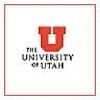
Founded in 1850, University of Utah (The U) is the oldest state university west of the Missouri River. When it opened in November 1850 as the University of Deseret, the school’s first term was designated “men only.” Today, nearly half of the students at University of Utah are women.
With a student population of over 31,000 students, The U is one of the largest universities in the state. The school offers hundreds of programs in 17 colleges and schools and nearly 100 departments. The David Eccles School of Business offers an online MBA (Eccles MBAO) that takes 24 months to complete. Consisting of 48 credit hours, the program allows students to take two courses at a time held in five and 10-week blocks.
Eccles MBAO classes are available 24/7 and “provide a dynamic, highly interactive learning experience,” says the school. Course highlights include Business Ethics, Business Technology, Data Analysis, Global Business, Data Analysis, Managing & Leading Organizations, and Project Management. “On-demand lectures with in-depth discussions between team members and faculty using high-end web conferencing means “class is “whenever and wherever” students want it to be.
Students also have the opportunity to interact with faculty and other students in a weekly live web-conferencing session, as well as during one three-day on-campus residency. Online forums and multimedia are also utilized in this AACSB-accredited program and students can select a mixture of online and on-campus classes at any time, if desired.
Graduates of the Eccles MBAO report a 34% salary increase by graduation and on average, 56% of students are promoted while in the program.
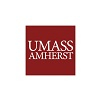
Established in 1863 as a land-grant agricultural college, University of Massachusetts-Amherst (UMass-Amherst) offered its first classes in 1867 with four faculty members, four wooden buildings on 310 rural acres, 56 students and a curriculum combining modern farming, science, technical courses, and liberal arts. Today, UMass-Amherst sits on 1,463 acres, the school serves nearly 31,700 students, and it houses the tallest research library on any college campus in the country and the second tallest library in the world.
UMass-Amherst also houses Isenberg School of Management, which opened its doors in 1947 with just 10 faculty members and 15 students. Today, this business school has a faculty of 133 educators and 124 staff-members serving more than 5,300 students. The Isenberg Online MBA enrolls more than 1,400 professionals, many with more than 10 years’ work experience.
The 45 credit hour program offers five focus areas including Business Analytics, Entrepreneurship, Finance, Healthcare Administration, and Marketing. Fully accredited by the AACSB, the Isenberg MBA also offers a unique opportunity for students to “try before you buy.” Potential MBA students can take up to two classes before applying to learn why the program is a good fit.
Besides five in-demand focus areas and the opportunity to experience the program before committing, Isenberg Online MBA students have an additional delivery option available to them. The Blended Option Part-Time MBA allows students to take some classes online and others at a conveniently located satellite campus in Boston, Shrewsbury, or Springfield, Massachusetts.
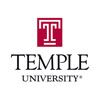
Founded by Russell H. Conwell in 1884, Temple University (Temple) is a public, four-year research university in Philadelphia that serves 37,365 students enrolled in more than 200 programs in 17 colleges and schools. The Fox School of Business at Temple houses the online MBA program known as the “Fox OMBA.”
Students in this 48 credit hour program will use a combination of “leading-edge virtual technology,” including web conferencing technology and HD, mobile-friendly, and on-demand lecture videos. While coursework for the program is available entirely online, students must attend one weeklong residency, which is held at the school’s main campus.
Students must also “attend” live weekly classes held through WebEx. This gives students the opportunity to meet classmates and faculty in an environment that allows them to “speak with and see one another.”
The Fox OMBA offers more than a dozen concentration options. Just a few include Business Analytics, Corporate Compliance, Governance and Regulatory Policy, Entrepreneurship, Innovation Management, International Management, Sport Business, Strategic Management, and Travel & Tourism. Concentrations require nine of students’ 12 elective credits. Students in pursuit of a General MBA degree may choose nine credits worth of any elective course.
Dual degree programs are also available and include MBA/MS in Business Analytics, MBA/MA in Human Resources Management, and the MBA/MS in Innovation Management and Entrepreneurship.
Even with a concentration, many FOX OMBA students complete this AACSB-accredited program in as few as 20 months. Others take up to six years, utilizing the schools flexible “hop-on, hop-off curriculum carousel.” Each student can expect to spend approximately 10-20 hours each week on coursework. The program culminates in an Enterprise Consulting Practicum (Capstone), worth three credits.
Serving approximately 165,000 students at 13 universities across 26 campuses, the University of Wisconsin System (UW) is one of the largest systems of public higher education in the nation. Through its statewide extension and outreach programs, the system also serves more than one million citizens. Three campuses—UW-Eau Claire, UW-La Crosse, and UW Oshkosh—have joined forces to create the University of Wisconsin MBA Consortium.
This AACSB-accredited program is the only offering among UW’s peer consortial programs to grant the degree from the MBA Consortium Program rather than from one of the partner schools. The program curriculum “combines four credits of business essentials courses, 22 credits of core courses, and ten credits of electives to cover general business competencies,” says the school, “while enabling” students to design a customized learning experience based on their individual interests.
Through electives, students may focus in a specific area or two, without officially declaring an emphasis/concentration. Elective course highlights include Corporate Venturing, Incorporation of Exchange Rates in Strategic Decision-Making, Introduction to Enterprise Resource Planning, Managing Technology in Turbulent Times, Mutual Fund Investing, Regional Trade Agreements and Multinational Corporations, and Sustainability and Organizational Management.
Other course highlights for the MBA Consortium Program include Competing Strategically in a Global Environment, Developing New Products and Services, Leading a Diverse and Dynamic Workforce, and Navigating Change amid Uncertainty. Students will also complete a capstone (Refining Your Plan for Success) at the end of the program. Coursework for the program may be completed entirely online—no campus visits required.
Graduates of the Online MBA Program will be able to “demonstrate the knowledge and skills necessary to be effective leaders, who can lead a diverse and inclusive organization, identify and evaluate market opportunity, and use critical thinking and analytical reasoning to make informed business decisions.” Graduates will also be able to “create and maintain a dynamic vision for personal and professional development in a global and domestic context.”
The Online MBA at UW may be completed in 2.5 to three years.
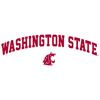
Established in 1890, Washington State University (WSU) began as Washington State Agricultural College and School of Sciences. The name changed to State College of Washington in 1905, and finally, to Washington State University in 1959. The school, which serves nearly 20,000 students from 50 states and 98 countries, offers 565 study abroad programs in over 70 countries, it houses 260+ registered student organizations, and it offers more than 200 degrees and majors in 11 colleges.
The Carson College of Business at WSU offers an AACSB-accredited online MBA with four concentrations and a General Track. Concentrations include Finance, Hospitality Business Management, International Business, and Marketing. The program may be completed in as few as 22-29 months and the GMAT is not required for qualified applicants.
Two major highlights of this 36 credit hour program are the optional international field study and the option to earn a nine-credit graduate certificate upon completion of any concentration. In July 2021, the international field study option offers the opportunity to travel to Prague. Students will learn from local professors and experts, meet classmates in person, and network with professionals outside the U.S., helping students build confidence to venture into overseas markets after graduation. A wide range of topics specific Prague will be covered, in addition to tours of cultural landmarks.
The WSU Carson Online MBA experience closes with three capstone courses for an additional six credits. All coursework is entirely online and may be completed in as few as 22-29 months.
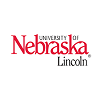
Chartered in 1869, University of Nebraska–Lincoln (UNL) is a member of the Big Ten Conference and the Big Ten Academic Alliance. Classified within the Carnegie “R1: Doctoral Universities – Highest Research Activity” category, UNL is also a land-grant university and a member of the Association of Public and Land-grant Universities (APLU).
Serving 25,390 students, UNL offers more than 250 majors, degree programs, and certificates. One of the school’s most popular programs is Business.
The College of Business offers a variety of flexible pathways to the coveted MBA. Options include the Traditional MBA and a 48 credit hour MBA delivered entirely online. Online courses for this program are offered in eight-week sessions. The College of Business also offers a Flex MBA program, which is a blend of both on-campus and online courses. However, the majority of courses for this program are taken on-campus at the “renowned” Howard L. Hawks Hall, which opened in 2017.
For the 100% online MBA program known as MBA@Nebraska, students “will never have to come to campus, which makes this option the most flexible” of the school’s three MBA programs, says the school. The program includes 10 core classes (30 hours), nine hours of breadth electives, and nine hours of electives. Specialization options include Business Analytics, Finance, International Business, Marketing, and Supply Chain Management. Online graduate certificates are also available in Business Analytics, Financial Communications, Human Resource Management, and Supply Chain Management.
In addition to the option to choose a specialization or certificate, MBA@Nebraska students are expected to participate in an internship. “Internships are designed to give students practical experience in managerial and/or administrative situations.” Students can participate in a maximum of two internships and earn three hours of elective credit for each internship, for a maximum of six hours.
Start times for the AACSB-accredited MBA@Nebraska program are January, March, June, August or October of each year. The average completion time for the program is three years, but it is possible to finish in 1.5 years. However, students are allowed up to 10 years to complete the program.
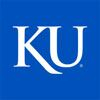
In 1866, University of Kansas (KU) welcomed its first class of 55 students to what the school calls “an unfinished building on a treeless ridge called Mount Oread.” Today, the school has five campuses — Lawrence, the Edwards Campus in Overland Park, and medical branches in Kansas City, Wichita, and Salina — serving nearly 28,000 students in dozens of schools and departments.
The School of Business at University of Kansas (KU School of Business) offers an AACSB-accredited MBA program that may be completed entirely online. There are no residency requirements for this 42 credit hour program and courses are eight weeks each. Three focus areas are available including Finance, Management & Leadership, and Marketing.
The Finance focus requires four courses including Advanced Topics in Finance, Corporate Finance, Financial Institutions and Markets, and Investments. Management & Leadership requires Developing Effective Management and Team Skills, Leadership Philosophy and Practice, Managing Internationally, and Strategic Organizational Design and Change Management. The Marketing focus requires Consumer Behavior, Digital and Social Media Marketing, Global Marketing, and Integrated Marketing Communications.
With three start dates per year (spring, summer and fall), the KU School of Business Online MBA may be completed in just over two years.
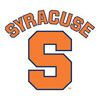
Founded in 1870, Syracuse University (SU) is a private, coeducational, research institution located in the heart of Central New York. Additional centers are located in New York City, Washington D.C., and Los Angeles, and study abroad programs are available in 60 countries throughout the world. Around 22,850 students have access to more than 200 majors, 100 minors, and 200 advanced degree programs across the SU’s 13 schools and colleges.
In addition to offering a large number of degree and study abroad programs, Syracuse University has more than 30 research centers and institutes spanning disciplines from performance, design, fine arts, and humanities to information, health, social sciences, and STEM (Science, Technology, Engineering, and Mathematics) fields.
The Martin J. Whitman School of Management at Syracuse University offers an online MBA known as the MBA@Syracuse. The program consists of 36 credits of core business courses, 15 credits of specialization-focused electives, and three credits of U.S. and global residencies. Students may choose from six optional specializations including Accounting, Business Analytics, Entrepreneurship, Finance, Marketing Management, or Supply Chain Management.
This AACSB-accredited program combines “live online classes led by Syracuse University faculty, self-paced coursework, and hands-on learning through domestic and international residencies,” says the school. While coursework for the MBA program may be completed entirely online, all students will participate in “three day-long residencies in cities around the world.” The school says these hands-on experiences are structured like businesses conferences.
Whitman Online MBA students will listen to local speakers who host “relevant discussions and interactive panels,” meet with classmates for socializing, and engage with professor’s fact-to-face for workshops and networking.” In 2019, residencies took place in Hong Kong and Syracuse. In 2018, students also traveled to Dublin, Ireland to study “the industry-leading innovation” taking place there.
The MBA@Syracuse does not require the GMAT to apply. Including residencies, the program can be completed in as few as two years.
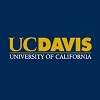
University of California Davis (UC Davis) opened in 1908 as the University Farm—the research and science-based instruction extension of UC Berkeley. Today, the school is one of the nation’s top 10 public universities and is the largest in area of the 10 campuses in the UC system and the third largest in student population. The almost 40,000 students who attend UC Davis pursue more than 200 undergraduate majors and graduate programs, as well as professional programs in law, business management, medicine, and engineering. Programs are offered across eleven colleges and schools.
The UC Davis Graduate School of Management offers an online MBA program known as “MBA@UCDavis.” The school says the program offers “first-of-its-kind access to a nationally ranked University of California management school.”
The “centerpiece” of the online MBA@UCDavis experience is the live online classes, where students participate in “spirited, face-to-face conversations” with peers and the school’s “world-class faculty” on a “state-of-the-art technology platform.”
This STEM-designated MBA program requires 72 units with core courses that provide a foundation in the functional areas of business, such as accounting, economics, finance, marketing and strategy. Electives allow students to expand or narrow their interests. Course highlights include Data Analysis for Managers, Digital Marketing, Management of Innovation, New and Small Business Ventures, and The Individual and Group Dynamics.
Students may participate in a series of In-Person Residentials, where they will have the opportunity to join classmates, professors and business leaders for multiday, in-person experiences. “Planned for Silicon Valley, Davis and Napa Valley,” these residentials allow students to network and sharpen their skills.
Graduates of the MBA@UCDavis Program enjoy an 84% job placement rate within six months after graduation.
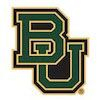
Chartered in 1845 by the Republic of Texas, Baylor University (BU) serves just over 19,500 students enrolled in more than 250 degree programs in 12 nationally recognized academic divisions. Hankamer School of Business at BU offers an online MBA that can be completed in as few as 12 months.
The 48-60 credit hour BU Online MBA has four in-demand concentrations, with courses taught by the same faculty as on-campus MBA students. Concentrations include Cybersecurity, Executive Communication, Global Trade & Supply Chain Management, and Marketing.
Through “engaging conversations,” with professors and classmates, students in the General MBA option and all concentrations “will learn to communicate professionally, work in teams and approach complex business situations with faith-based integrity,” says the school.
Depending on the concentration, graduates go on to enhance their careers or to new careers such as Brand Manager, Chief Financial Officer (CFO), Chief Information Officer (CIO), Communications Operations Manager, Cybersecurity Consultant, Digital Marketing Manager, Division Leader, Entrepreneur, Global Logistics Manager, IT Director, Management Consultant, Marketing Director, Senior Marketing Analyst, Supply Chain Consultant, Transportation Director, and many others.
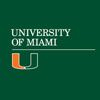
Established in 1925, University of Miami (UM) serves more than 17,000 students enrolled in more than 180 majors and programs across 11 schools and colleges. One of the region’s top research universities, UM houses the School of Business Administration, which offers an inline MBA known as the “UOnline Professional MBA.” This 42 credit hour, AACSB-accredited program is “taught by the same high-caliber faculty members that also teach on-campus,” says the school, and it takes 24-48 months to complete.
Focus areas for the program include Accounting Practice, Corporate Finance, and Financial Decision Making. Accounting Practice requires an additional nine credit hours of study and Corporate Finance and Financial Decision Making require an additional five credit hours.
Though the MBA program is delivered entirely online, students may attend an optional, on campus residency and/or an optional on campus orientation and campus tour. The residency is a “week-long immersion session, during which you will take one full, accelerated course on campus.” The orientation allows students to meet faculty, University staff, and fellow classmates before their studies begin.
The GMAT is not a requirement for admission to the UOnline Professional MBA Program.
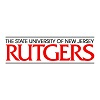
Chartered in 1766, Rutgers University is the eighth oldest institution of higher learning in the United States. Known as the Birthplace of College Football, Rutgers serves more than 71,000 students from all 50 states and 125 countries, making it one of the nation’s largest schools by enrollment. More than 150 undergraduate programs and over 200 graduate programs of study are offered in 29 schools and colleges.
Rutgers Business School offers an MBA program that is delivered entirely online. Students in the Rutgers-Camden Online MBA may attend classes year-round, full or part-time, and they may choose from Fall, Spring, and Summer starting points. The 42 credit hour program allows students to learn “in real-time about challenges and solutions that cross disciplines,” says the school, with a focus “on the key areas of business.” The program also offers “an extensive selection of elective courses that cover every avenue of modern business including marketing, finance, IT, and human resources.”
Graduate Certificates allow students to “delve deeper into” a specialty area that matches their career interests and goals. Options include Business Analytics, Digital Marketing, Investment & Private Wealth Management, Modern Financial Technology (FinTech), and Strategic Leadership.
More than 300 current MBA students have the opportunity to travel abroad to satisfy one, three-credit elective requirement. Those who choose the study abroad option will be given the opportunity to meet with top executives and solve real-life international business challenges. There will also be an opportunity to experience cultural activities on the weekends and evenings. Just a few study abroad locations include Brazil, China, Cuba, Panama, Portugal, South Africa, and South Korea.
Graduates of the AACSB-accredited Rutgers-Camden Online MBA program will learn to “make knowledgeable decisions and become a respected leader, increase their influence by employing management skills to guide their teams and companies, better analyze problems and clearly articulate effective solutions, and expand their network and connect with notable Rutgers alumni, classmates, and faculty.”
Other program highlights include small class sizes, learning tools and tutoring, access to student coaches and advisors, a five-year ROI of $169,768, and Focused Learning Modules that allow students to “build expertise” in their career area. Modules include Business Analytics, Digital Marketing, Investments & Private Wealth Management, and Strategic Leadership.
Graduates of the Rutgers-Camden Online MBA have gone on to successful careers at Aramark, Christie’s, Comcast, Deutsche Bank Securities, Easterseals, Ernst & Young, JP Morgan, Lockheed Martin, Morgan Stanley, Prudential, Shell Oil, Subaru, US Bancorp, the US Navy, Verizon, Westinghouse Lighting Corp., and many others.
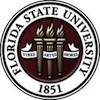
Founded in 1851, Florida State University (FSU) is the oldest continuous site of higher education in Florida. Serving nearly 42,600 students. FSU is also one of the largest universities in the state serving. With notable alumni such as Benjamin Crump, Deion Sanders, Jim Morrison, and Sara Blakely, members of the New York Yankees, and over twenty current and former generals and admirals in the U.S. military, FSU also has a network of more than 360,000 alumni from Florida and around the world.
The College of Business at FSU (COB FSU) serves more than 6,000 students enrolled in dozens of bachelor’s, master’s and doctoral degree programs. The school offers two online MBA programs: the Part-Time MBA and the Part-Time MBA with a Real Estate Specialization. The 39 credit hour Part-Time MBA offers a General Track or a Specialization in Management Information Systems or Risk Management and Insurance. The program may be completed in two to 2.5 years or seven semesters.
Online MBA students may participate in the Global Business Seminar for Graduate Students, which provides the opportunity to study abroad in Seoul, South Korea at firms such as Samsung Electronics, Hyundai, Kia and LG. The program, which also features several cultural excursions, focuses on the "globalization and sustainability of Korean multinational firms," says the school.
The Part-Time MBA with a Real Estate Specialization also consists of 39 credit hours and features a “rigorous set of elective courses focused on real estate and analysis.” The program, which also offers a study abroad option, may be completed in two to 2.5 years. As part of the FSU College of Business, both the Part-Time MBA and Part-Time MBA-Real Estate are AACSB-accredited.
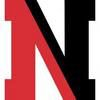
Founded in 1898, Northeastern University serves 20,400 undergraduate students and 17,379 graduate students across 10 locations in Boston; the Massachusetts communities of Burlington and Nahant; Charlotte, North Carolina; London; San Francisco; Seattle; Silicon Valley; Toronto; and Vancouver. The school offers more than 250 programs in nine colleges and schools.
Serving around 5,500 students, Northeastern University’s D'Amore-McKim School of Business offers an AACSB-accredited MBA degree program that can be completed 100% online in as few as two years. The program, which places emphasis on digital analytics and expertise, consists of 50 credit hours of study divided into two segments: 13 core courses and five electives. Eight in-demand specialization options are offered including Finance, Healthcare Management, High Technology Management, Innovation Entrepreneurship, International Management, Marketing, Supply Chain Management, and Sustainability.
D'Amore-McKim Online MBA students also have the option to earn a Dual Masters in Finance/MBA by taking "as few as four to seven additional finance electives," says the school. Both the single and dual online programs utilize interactive multimedia tools such as virtual class discussions, and discussion boards, as well as team projects and individual assignments for a well-rounded academic experience.
An optional residency is offered to online MBA students who have (or will have) completed at least three courses (nine credits). The campus-based residency is an intensive one-week course equivalent to a three-credit elective. An International Field Study Residency is offered to online MBA students in good standing who have (or will have) completed the first year core courses (26 credits) with a GPA of 3.0 prior to the start of the field study trip. Recent locations include China, Russia, Greece/Turkey, and Chile/Peru.
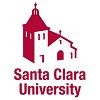
Established in 1851, Santa Clara University (SCU) is a Jesuit university located in Silicon Valley. The school serves close to 8,700 students enrolled in 50 majors, minors, and programs across six schools and colleges. SCU’s Leavey School of Business (LSB) houses the MBA program, which has on both campus and online options.
Designed to help students become “Silicon Valley Professionals (SVPs),” this AACSB-accredited program highlights a curriculum based in “innovation and responsibility,” says the school. Sample courses include Doing Business in Silicon Valley, Leading People and Organizations, Ethics for Managers, Strategy, Analysis, Design, and Management of Enterprise Platforms, and Marketing is Everything. The program also highlights 28 units of free electives that allow students to focus in one or more areas.
The Leavey Online MBA requires two on-campus intensives, where students will meet their peers and experience Santa Clara University in person. These are the only two campus requirements. Otherwise, online students will take courses whenever and wherever, but they will learn from the same professors who teach the on-campus program. The program may be completed in as few as two years.
Leavey Online MBA alumni include C-level individuals from Adobe, Amazon, Apple, Cisco, Google, GoPro, LinkedIn, and many others.
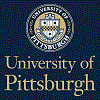
Founded in 1787 as Pittsburgh Academy, the University of Pittsburgh (Pitt) is one of the oldest institutions of higher education in the United States. This state-related research university is one of the 17 founding members of the AACSB. The school is also home to one of the first federally funded centers for international business and research.
University of Pittsburgh serves 33,320 students enrolled in more than 300 programs at the Pittsburgh campus as well as Pitt's regional campuses in Bradford, Greensburg, Johnstown and Titusville. Pitt houses the Joseph M. Katz Graduate School of Business, which offers a part-time, flexible MBA designed for “working professionals seeking business acumen and individualized career growth,” says the school. “The elements of the part-time Katz MBA are delivered in several convenient formats including either online or on-campus core courses.” Students set the pace that works for them.
The program requires campus visits two to three weekends a semester. Like the full-time Katz MBA, the online program offers “an integrated core curriculum with a solid foundation in business principles; countless networking, leadership, and career-building opportunities; and an expert faculty made up of innovative thought leaders.”
A unique component of the online program is the Katz Credential. MBA students may choose to complete a Credential “in order to highlight expertise and hands-on experience in a particular business area.” Credentials include a “bundle of specialized coursework that build the students capabilities, knowledge, and experience in a meaningful way.” Options include Business Analytics, Finance, Marketing Operations, and Technology Management.
Another innovative component of the program is the Business Disruption Series. “Through this innovative series, students learn what business disruption is and how to become a catalyst for change.” Students can select “game changer” courses that “highlight faculty expertise on relevant and current business issues and trends.” For example, the student may take a course “exploring augmented reality (AR) marketing or learning how the global pandemic has influenced private equity investing.”
Students typically complete the part-time Katz Online MBA Program in three years.
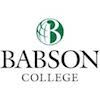
Established in 1919, Babson College is an independent, not-for-profit institution that opened with just 27 students. Today, the school serves more than 2,350 undergraduate and nearly 1,000 graduate students representing more than 80 countries.
The F.W. Olin Graduate School of Business at Babson grants highly ranked MBA and MS degrees, as well as Certificates. The school also offers an Executive Education program for professionals looking to grow in today’s rapidly evolving business environment and Babson Global works with corporate, university, government, and foundation partners to advance entrepreneurship education and Entrepreneurial Thought and Action® worldwide.
Olin offers an MBA in Entrepreneurship that can be completed 100% online. Students in the program have the option to register for on-campus classes. Forty-five total credits, of which one-third are the required core and two-thirds are electives that the student chooses. Because the program has multiple start dates, “there’s never a wait to dive in,” says the school.
Highlights for this AACSB-accredited program include experiential learning “woven throughout,” the opportunity to participate in student consulting projects across more than 80 partner organizations each year, and seven unique concentrations, including two STEM-designated options. Concentrations include Business Analytics, Business Analytics and Machine Learning (STEM), Entrepreneurship, Global Management, Finance, Quantitative Finance (STEM), and Marketing. Students may choose up to two concentrations.
Graduates of the Olin Online MBA Program enjoy an 81% employment rate within three months of completing the program. Program alumni are “succeeding as entrepreneurial leaders in organizations ranging from Fortune 500 companies to dynamic startups.” Top industries for graduates include Technology, Consumer Products/Retail, Financial Services, Manufacturing, Life Sciences/Healthcare, and Consulting.

On February 8, 1693, King William III and Queen Mary II of England signed the charter for a "perpetual College of Divinity, Philosophy, Languages, and other good Arts and Sciences" to be founded in the Virginia Colony. With original plans for the school dating back to 1618—decades before Harvard—William & Mary (M&W) is the second-oldest institution of higher learning in America.
A 17-year-old George Washington received his surveyor's license through W&M and would later return as its first American chancellor, Thomas Jefferson received his undergraduate education here, as did presidents John Tyler and James Monroe.
The Raymond A. Mason School of Business at W&M offers a 49-credit MBA program for working professionals. This interdisciplinary program consist of 12 courses and it may be completed entirely online. Each course is 7.5 weeks, with just 22 students per course. Students begin the program with the unique Renaissance Manager course, which explores “design thinking as an iterative approach to identifying and solving problems,” says the school.
The program also explores “the importance of both deep expertise and broad knowledge, understanding systemic connection as a part of creative problem-solving, how a willingness to experiment promotes a growth mindset, and the ability to synthesize new ideas from seemingly unrelated or opposing ideas,” and more.
Other highlights include courses such as Global Managerial Economics, Integrated Technology, Leadership for the 21st Century, Revolutionary Leader Practicum, and Strategy.
Students will attend just one on-campus residency. This Friday thru Sunday event includes speakers, team-building activities and networking functions and students will have the opportunity to “discuss core business topics such as leadership, finance and marketing, as well as current events and global issues.” Students will meet the school’s Executive Partners (EPs), “a select group of retired professionals who volunteer their time as mentors to all Mason School of Business students.”
Students can expect to complete the AACSB-accredited W&M Mason Online MBA in just two years.
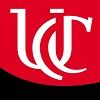
The University of Cincinnati (UC) traces its origins to 1819 when both Cincinnati College and the Medical College of Ohio were chartered. In 1870, the City of Cincinnati established the University of Cincinnati, which later absorbed the two predecessor institutions. One of the oldest and largest municipal universities in the country, UC serves nearly 47,000 enrolled in nearly 800 degree, certificate, and minor programs.
UC also houses one of the country’s top three co-op programs. CP students “earn a collective $75 million annually working for about 1,300 international employers via their co-op work placements,” says the school “alternating academic semesters with professional, paid work directly tied to their majors with employers like Apple, Boeing, Disney, Fisher Price, HBO, NASA, Nike, P&G, Toyota and hundreds more.”
UC programs are housed in 11 colleges, UC Blue Ash College, UC Clermont College, and the Graduate School. The Carl H. Lindner College of Business at the University of Cincinnati has been accredited by the AACSB since 1919. The school offers an online MBA program with two options—part time or accelerated. The part-time program can be completed within two years and the accelerated program can be completed in as few as 12 months.
Consisting of 38-48 credit hours, the MBA program helps students develop “strategic leadership and decision-making skills” as well as core skills in accounting, business analytics, economics, finance, information technology, leadership, marketing, and operations management. The Linder Online MBA Program also offers eight online certificate/concentrations including Corporate Taxation, Health Care Administration, Health Care Finance, Health Care Policy and Regulation, Health Care Operations, Individual Taxation, Investment Management, and Marketing. Each certificate/concentration requires 12 credit hours of study.
Other program highlights include research-intensive learning with real-world experiences, opportunities to study abroad, engagement with corporate partners, and career services that connect students and graduates to employers.
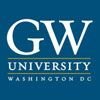
Founded in 1821 and serving more than 26,000 students, George Washington University (GW or GWU) is the largest higher education institution in DC. Located just four blocks from the White House, the school has a long list of prominent alumni including around 18 state governors, three current and 20 former US senators and six current and 86 former members of congress.
GWU offers hundreds of programs, including 100 online programs in 12 areas, in 14 schools and colleges. In addition to these programs. The School of Business (GWSB) offers an Online Traditional or Healthcare MBA that may be completed in just two years and up to five. Both programs require 55.5 total credit hours of study including 28.5 credit hours of core courses and 27 credit hours of elective courses for the Traditional MBA, and 31.5 credit hours of core courses, 12 healthcare electives, and 12 general electives for the Healthcare MBA.
The Healthcare MBA is delivered 100% online (or hybrid) and features specialized electives such as Service Line and Project Management, Managing the Skilled Nursing Facility, and Physician Practice Management. Designed for professionals on the path to becoming Health Care Managers, Administrators, and Executives, the program also offers the option to complete one of seven graduate certificates offered by the George Washington University School of Medicine and Health Sciences as part of the curriculum. Clinical Research Administration, Integrative Medicine, and Regulatory Affairs are just a few options.
The Traditional MBA option may be completed 100% online or in hybrid format. The program offers optional concentrations in Consulting, Finance, Global Management, Government Contracts, Information Systems & Technology Management, and Project Management. Students may choose up to two concentrations or they may customize their electives to create their own focus area. Electives may be chosen from the schools of Business, Health Sciences, Public Health, Law, and more. Elective courses may also serve to add a graduate certificate to this Traditional MBA.
The GWSB Online MBA curriculum also includes Business and Society (a required 1.5 credit on-site residency course in Washington, DC) and a 1.5 credit Information Systems and Technology Management selective course. Students are offered nine opportunities to complete the on-site course, which offers a firsthand look through visits to the Federal Reserve, the US Congress, and the World Bank.
Both AACSB-accredited programs offer three start times (August, January, and May), along with optional short-term study abroad opportunities in places such as Denmark, Israel, Mexico, and more.

Colorado State University (CSU) was founded in 1870 as the Colorado Agricultural College. Situated on nearly 5,000 acres of land, including the main campus, a foothills campus, an agricultural campus, and a Mountain Campus, CSU has an additional 4,600 acres for research centers, Cooperative Extension offices, and Colorado State Forest Service stations.
CSU serves around 32,650 students enrolled in 250 academic programs, more than 80 minors, and several professional advising tracks across eight colleges and a graduate school. The College of Business offers a Professional MBA Program that dates back to 1975—when the first “distance” offering was introduced.
Today, this 42 credit hour program is offered 100% online and it consists of self-paced lectures in step with class assignments. Focus areas include Computer Information Systems, Finance, and Marketing Data Analytics. Students may also choose to focus in “Professional Enrichment,” which consists of electives such as the International Study Trip. During this 7-10 experience, students will meet with business leaders, where they will learn international business culture, and become acclimated to environments different from their own.
Other program highlights include the opportunity to complete a business certificate. Options include Accounting, Applied Finance, Business Analytics and Accounting Systems, Business Information Systems, Business Intelligence, Ethics and Auditing, IT Project Management, Marketing Management, Nonprofit Administration, and Ski Area Management.
Including the focus area and study trip, students can expect to complete the AACSB-accredited online MBA program in as few as 21 months. However, students have the option to take up to five years to complete the program. Start dates include August, October, January, March, and May.
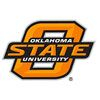
Founded in 1890 on Christmas Day, Oklahoma State University (OSU or OK State) is Oklahoma’s first Truman Honor Institution. The school has the largest comprehensive student union and its Edmon Low Library is one of the America’s top 100 academic research libraries. Famous alumni include Garth Brooks, T. Boone Pickens (business magnate and financier), Barry Sanders (NFL running back), and Anita Hill.
Serving nearly 25,000 students, OSU houses six academic colleges, plus a veterinary school and an osteopathic medical school, that offer more than 300 undergraduate majors and options, master's programs, and doctoral programs.
Watson Graduate School of Management houses the Spears School of Business, which offers a 33 credit hour MBA that can be completed part-time, online in as few as 12 months. “Online courses are available 24/7,” says the school, and they are “designed with multimedia content and virtual activities to promote student collaboration.”
Course highlights for the program include Corporate and Business Strategy, Design, Prototyping, and Testing Creative Products, Emerging Enterprise Consulting, Launching a Business: The First 100 Days, Professional Development (Part 1, Part 2 and Case Consulting), Social Entrepreneurship, Talent Acquisition, and Teams in Organizations.
Students in this AACSB-accredited program also have the opportunity to complete a study abroad “Entrepreneurship.”
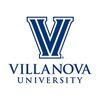
Villanova University was founded by the Order of Saint Augustine in 1842. The school serves 11,000 undergraduate, graduate and law students in the University’s six colleges—the College of Liberal Arts and Sciences, the Villanova School of Business (VSB), the College of Engineering, the M. Louise Fitzpatrick College of Nursing, the College of Professional Studies and the Villanova University Charles Widger School of Law. More than 100 programs are available.
Villanova School of Business offers an MBA program that can be completed entirely online. The program is the “very same” program as the on-campus Villanova MBA, says the school. The curriculum includes courses that will expand students’ “essential business knowledge with a focus on innovative and applied concepts, real-world immersion experiences and peer-to-peer learning.” Program highlights include small classes (approximately 20 students per online section), live weekly sessions, and two residency opportunities, which foster “a strong learning community among faculty and students.” Students may also participate in an optional international immersion into an emerging economy.
Students in the VSB Online MBA can begin the 48 credit hour (21 course) program in the fall, spring or summer semester. The curriculum is comprised of core, elective, fundamental, and capstone classes and students may choose up to two specializations from five areas including Analytics, Finance, International Business, Marketing, and Strategic Management.
Semesters for this AACSB-accredited program are divided into two sessions, each of which is eight weeks in the fall and spring and seven weeks in the summer. Students in the program progress through the curriculum, typically taking one or two courses per session. The VSB Online MBA can completed in just two years (Fast Track) and graduates of the program enjoy a 25% average salary raise.
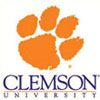
Founded in 1889, Clemson University is a public, land-grant research university that serves around 26,400 students. The second-largest university in South Carolina, Clemson offers more than 170 majors and minors, and 130+ graduate degree programs in 10 colleges and schools.
The College of Business launched an online MBA program in 2019 for candidates with more than two years’ work experience. This part-time, AACSB-accredited program designed for working professionals “utilizes the same corporate MBA curriculum and faculty and is designed to accelerate careers into areas of management and executive leadership,” says the school. The flexible format allows students to “select the class structure that best fits their schedule and learning style - and change it anytime during the semester.” This means, students can “join a live class through video conferencing,” allowing them to “participate fully and ask questions at any time.” Access to recorded lectures is available as well.
Other program highlights include the opportunity to earn a certificate to enhance the students’ credentials (Cybersecurity Business Practices and Reliability Engineering are just a few options), networking, seminars, conferences, and extensive resources in career planning. Students also have access to optional short-term study abroad opportunities in places such as Paris, Rome, and the UK.
Graduates of the Clemson University Online MBA Program enjoy a 95% job placement rate.

Founded in 1965, Florida International University (FIU) is Miami’s first and only four-year, public research university. The school, which has the highest research classification offered by the Carnegie Foundation for the Advancement of Teaching, has earned more than $1 billion during the past decade and it operates the world’s only underwater ocean laboratory—Aquarius. Serving nearly 54,000 students, FIU is one of the top 10 largest universities in the nation.
More than 250 programs are offered at FIU, including popular majors such as Business, Management, Marketing, and Related Support Services; Communication, Journalism, and Related Programs; Multi/Interdisciplinary Studies; Psychology; and Social Sciences.
The FIU Alvah H. Chapman Jr. Graduate School of Business offers a fully online MBA tailored for busy, working professionals. Known as the “Professional MBA (PMBA) Online,” the program
offers the flexibility to study anytime, anywhere, and at the students own pace. Students may choose from three different pacing tracks, five term starts, and ten specializations. In addition, the PMBA Program offers unique performance-based scholarships of up to $15,000.
FIU lists the following specialization options: Business Data Analytics, Business Law, Entrepreneurship and Innovation, Finance, International Business, Leadership, Marketing Channel Strategy, Real Estate, Sports Management, and Strategic Negotiations. Each specialization consists of two courses (out of the 14 total in the program).
In addition selecting a specialization, students will are required to take three Professional Development Seminars (PDS) during the first quarter of the program. Professional Development - Work Preference Indicator Assessment, Professional Development - Presentation Skills Seminar, and Professional Development - Career Services Seminar. An optional two-day MBA residency in Miami is available and highly recommend. The school says that the residency is “is a great opportunity for students to come to our beautiful campus to meet their professors, the program’s administrators, and network with their peers.”
During the two-day residency, the program focuses on “developing soft, career-enhancing skills. Activities include expert speakers on hot topics, case-method analysis, team-building workshop, an etiquette luncheon, and networking events.” The residency is included in tuition.
The FIU PMBA utilizes discussion boards, chat, and email, online e-advising and e-tutoring, and academic coaches. This AACSB-accredited program requires 42 credit hours of study to graduate and students interested in the healthcare industry may choose the Online Healthcare MBA. This program also requires 42 credit hours of study, which may be completed in as few as 18 months.
Depending on factors such as whether student attends full- or part-time, prerequisite requirements, and more, the FIU PMBA may be completed in as few as 18 to 21 months, or 33 months.

Founded in 1864 as the Colorado Seminary, University of Denver (DU) is the oldest independent higher education institution in the Rocky Mountain West. The school serves 12,000 graduates and undergraduates enrolled in more than 220 degree programs in 10 colleges and schools.
DU highlights include small class sizes (under 21 students), a “robust” study abroad program, experiential learning opportunities, career achievement through internships and job placement, and access to one of the nation’s first business schools.
Established in 1908 and continuously accredited by the AACSB since 1923, the Daniels College of Business is the nation’s eighth oldest business school. All programs at Daniels combine the study of business fundamentals with hands-on experience via simulations, practicum projects and interaction with local, regional and global business leaders. The Daniels Online MBA, also known as MBA@Denver, offers GMAT waivers, four start dates (January, March, June and September), and networking opportunities with 37,000+ Daniels alumni for mentoring, informational interviews, company tours, and more.
The program highlights an innovative digital campus, a hands-on curriculum, live online classes, self-paced coursework, in-person domestic and global immersions, LinkedIn Premium benefits, career support. The program also offers four concentrations including Executive Healthcare Administration, Executive Leadership, Finance, and Marketing. Students living in close proximity to the DU campus have the unique opportunity to explore on-ground concentrations such as Accounting, Business Analytics, and Real Estate.
MBA@Denver students and graduates work in various industries, including Banking, Consumer Goods and Services, Energy, Government and Military, Health, Transportation, and many others. Within these industries, students have held titles such as Analyst, C-Suite Executive (CEO, CFO, COO), Director, Program Manager, Vice President of Finance, Marketing or Sales, and many others.
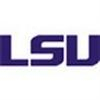
Louisiana State University (LSU) welcomed its first class on January 2, 1860. Today, the school is in the elite 1% of U.S. universities having land-, sea-, and space-grant designations. Serving 34,290 enrolled in more than 235 programs in 15 colleges and schools, LSU is known for graduating students that leave the school with zero debt and the chance to earn, on average, $12,000 more than those graduating from other universities.
The E.J. Ourso College of Business at Louisiana State University (LSU) is home to the Flores Online MBA. Designed for professionals with at least five years’ work experience, this AACSB-accredited program offers six start dates annually.
Flores MBA students are required to take 14 courses (42 credit hours) and they have the opportunity to choose elective courses to create a focus. A few options include Negotiation, Persuasion and Influence, and Seminar in New Developments in Business Administration.
There are no residency requirements for the LSU Flores Online MBA and students may complete the program in as few as 18 months.

Established in 1918 as the Indiana State Normal School Eastern Division, Ball State University (BSU or Ball State) serves 22,000 students enrolled in more than 300 programs in nine colleges. With one of the lowest tuition rates in the Mid-American Conference, Ball State houses the Miller College of Business, which offers an online MBA program that may be completed in as few as two years.
The Miller Online MBA includes 24 credits of core courses and six to nine credits of MBA electives “covering in-depth knowledge of business analytics, entrepreneurship, finance, leadership, marketing, sales, and more,” says the school.
This AACSB-accredited program offers nine optional concentrations including Artificial Intelligence, Business Analytics, Construction Management, Entrepreneurship, Finance, Healthcare Administration, Health Economics Policy and Administration, Information Technology Leadership, Logistics and Supply Chain Management, and Sales Management. A General MBA that allows students to customize their experience through a variety of course subjects is also available, as well as Certificates in Health Economics and Professional Sales.
Miller Online MBA students will complete coursework for the program through a combination of asynchronous (no specific sign-on time each week) and synchronous (specific time to watch and participate in live webcast lectures and discussions) formats. Students will “keep in contact with instructors and classmates using e-mail, discussion boards, file sharing, chats, web page posting, and possibly over the telephone.”
Miller College of Business offers an additional delivery format option designed for students who prefer a combination of online and on-campus classes. The Hybrid MBA allows students to choose which classes they would like to take on-campus and which ones they prefer to complete online. Most students (in either program) enroll in an average of two courses each semester and typically complete the program in five to six semesters. Three start times are available including fall, spring, and summer.
There are no residency requirements for the fully Online Miller MBA.

Lehigh University is a small, private research university that serves more than 7,000 students. Founded in 1865 by industrial pioneer, entrepreneur, and philanthropist Asa Packer, Lehigh University offers more than 100 majors, minors and programs across four colleges.
The College of Business and Economics at Lehigh University offers a 100% online Flex MBA. This 36 credit hour program highlights global business concepts and analysis, cultural intelligence, organizational leadership, sustainability, crisis management resolutions, social consciousness issues, ethical decision-making, and optional business consulting projects. While the program does not offer any concentrations, students may earn a Professional Certificate in Corporate Entrepreneurship in addition to the MBA. The certificate is offered through VENTURESeries, which the school describes as a “one-of-a-kind executive certificate program that focuses squarely on new venture creation.”
Another option, the 45 credit hour MBA & Engineering (MBA & E) program, is offered through the College of Business and Economics and the P.C. Rossin College of Engineering and Applied Sciences. This unique program is designed for students with an undergraduate degree in engineering. Classes for the program can be taken both on campus and online. MBA & E concentrations include Chemical Engineering, Manufacturing Systems Engineering, and Mechanical Engineering. Upon completion of the MBA & E Program, students receive an MBA degree with a concentration in their chosen area. Both programs are AACSB-accredited.
Despite a global pandemic, three out of four Lehigh MBA students were able to secure employment within three months of graduation. With an average starting salary of $109,000, MBA graduates have been hired by companies such as Anheuser-Busch, ADP, AstraZeneca, BP- China, HubSpot, Motorola, QVC, TESLA, The Hershey Company, and the United Nations.
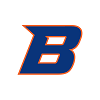
Boise State University (Boise State) was founded in 1932 by the Episcopal Church. The school, which became an independent junior college in 1934, has been awarding baccalaureate and master degrees since 1965. Serving 19,825 degree-seeking students enrolled in 200 areas of study, Boise State University is Idaho’s largest university. Programs at this doctoral research institution are offered in seven academic colleges, the Honors College, and the Graduate College.
The College of Business and Economics at Boise State University (COBE Boise State) offers an MBA program that is the only MBA in the Treasure Valley with AACSB accreditation. Designed for mid-career professionals, the COBE Online MBA (OMBA) provides 49 credit hours of study in 13 courses offered in eight-week quarters. Launched in Fall 2019, the program now offers Construction Management, Healthcare Leadership, and Management Specializations.
Course highlights for the programs include Business Plan Development, Design Thinking and Strategic Management, Global Economics: Policy and Trade, Information Technology and Business Alignment, Managing Successful Projects, and People and Organizations.
Offered entirely online (campus visits are not required), the COBE MBA uses 100% digital content, “replacing traditional textbook cost and hassle,” says the school. Program tuition includes all course materials, which are accessible through any web-enabled device that supports HTML5. Students can complete the program in as few as 12 months, full-time.
Graduates of the COBE OMBA are prepared for advancement opportunities in their current careers or new positions such as Business Owner, Director, Executive, General Manager, Project Manager, Senior Manager, and many others.
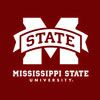
Mississippi State University (MSU) was established in 1878. This comprehensive, doctoral degree-granting institution holds the Carnegie Foundation for the Advancement of Teaching’s designation as a Doctoral/Extensive institution. As the state’s leading research university, the school serves nearly 23,000 students enrolled in more than 175 programs leading to a baccalaureate, master’s or doctoral degree.
MSU programs are offered in the colleges of Agriculture and Life Sciences; Architecture, Art and Design; Arts and Sciences; Business; Education; Forest Resources; Veterinary Medicine; the James Worth Bagley College of Engineering, and Shackouls Honors College.
The College of Business at MSU is recognized as the oldest business school in the south. It offers a 30 credit hour fully online MBA and a 33 credit hour online MBA with a Project Management Concentration. Courses for both programs emphasize Accounting, Business Decision Analysis, Finance, Management, Marketing, Strategic Management in a Competitive Environment, and Supply Chain & Operations Management.
Both AACSB-accredited programs offer enrollment in fall, spring, or summer and they typically take two years to complete. However, students who have completed all undergraduate prerequisites can finish either program in as few as 18 months. Prerequisite courses are also available online.
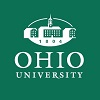
Ohio University was established in 1804 as the state’s first university. Serving more than 33,000 students, the school offers 250 academic programs in 20+ colleges and schools.
The College of Business at Ohio University is a Top 15 Public Business School. It offers an AACSB-accredited MBA program that may be completed entirely online. There is no GMAT requirement for admission and students may choose from nine concentrations including Accounting, Business Analytics, Business Venturing & Entrepreneurship, Executive Management, Finance, Health Care, Operations and Supply Chain Management, Strategic Selling & Sales Leadership, and Project Management. Students may also complete an online graduate certificate that will allow them to “upskill in as few as three courses,” says the school. Students may choose more than one certificate and courses can be applied towards the MBA.
Course highlights for the MBA include Accounting for Executives, Advanced Corporate Finance, Applied Business Experience (CAPSIM), Data Analysis for Decision Making, Descriptive Analytics, Operations Management, and Strategic Use of Information Systems. In the CAPSIM course, “students will work in teams and apply course material to complete a simulated business experience.” In the simulation, each team runs a fictitious firm.
Students “will define a business problem to address, assess the organization and its context, suggest solutions, and deliver an action plan for implementing the solution. Teams compete with one another in a dynamic industry environment.” The CAPSIM course “provides an opportunity to apply many of the concepts learned throughout the program.”
The MBA program at Ohio University may be completed in just two years, full-time.
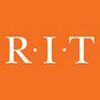
Rochester Institute of Technology (RIT) “was born of an unlikely institutional marriage of an influential cultural association, the Rochester Athenaeum, founded in 1829, and a technical training school, the Mechanics Institute, founded in 1885,” says the school. “The institute adopted the name Rochester Institute of Technology in 1944 and awarded its first bachelor of science degree in 1955.”
Today, RIT serves nearly 19,000 students in nine colleges and two degree-granting units. The school also has partnerships on nearly every continent and overseas campuses located in China, Croatia, Dubai, and Kosovo.
The Saunders School of Business at RIT offers an interdisciplinary, accelerated Online Executive MBA (EMBA) that requires just one three-day on-campus orientation. The program delivers 49 credit hours of study in just 17 months (four semesters).
The Online EMBA is AACSB accredited and offers foundational courses such as Accounting, Finance, and Leadership, as well as “distinctive” courses such as Product Commercialization and Technology Management. Classes are delivered via weekly synchronous sessions, “offering high-quality video and audio functionality for optimal interaction.”
Other program highlights include a curriculum that is identical to the on-campus program, with many of the same faculty teaching both formats, a required International Immersion Experience (airfare and lodging is are provided by the program), and the Capstone Consulting Program where students serve as consultants to actual businesses.
The RIT Saunders Online EMBA offers two starts each year (late August and January). Because it is a cohort-based program, “all students enter the program at the same time, take the same classes, and move through the program with their initial cohort,” explains the school. “Some courses will be taken with another cohort (i.e., dual-cohort) and students are assigned to teams at the start of the program and will remain with their team for the duration of the program.”
Students who start the Online EMBA in late August will finish in December of the following year and students who start in January will finish in May of the following year.
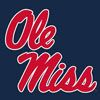
Chartered on February 24, 1844, University of Mississippi (Ole Miss or UM) is Mississippi's flagship university. The school opened its doors in 1848 to just 80 students. For the next 23 years, UM was Mississippi’s only public institution of higher learning. For 110 years, it was the state’s only comprehensive university.
Today, UM serves nearly 19,000 students at the Oxford campus and regional campuses in Grenada, Southaven, and Tupelo. UM offers hundreds of programs in the College of Liberal Arts, nine schools, and the Sally McDonnell Barksdale Honors College.
The School of Business Administration at UM offers an Online Professional MBA that “employs a fully supported online learning system integrated with features such as video conferencing, interactive discussions and similar collaborative technologies necessary for effective online instruction,” says the school.
The 36 credit hour program covers Communication, Entrepreneurial, Interpersonal, and Leadership skills as well as Critical and Strategic Thinking, and Creativity. Geared towards working professionals, the UM Online MBA highlights courses such as Contemporary Business Analysis, Managerial Accounting, Mobilizing Technology, and Organizational Behavior.
The UM Online MBA is AACSB accredited and it may be completed in as few as two years or extended to accommodate any work schedule.

